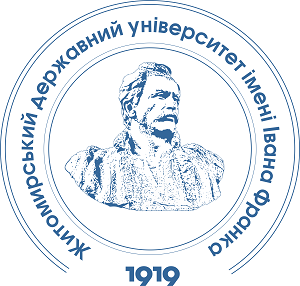RECOVERY STRATEGIES OF SOCIAL WORKERS WITH DIFFERENT LEVELS OF PROFESSIONAL BURNOUT
DOI:
https://doi.org/10.32782/psy-2025-5-1Keywords:
professional burnout, social workers, recovery strategies, BASIC Ph model, emotional exhaustion, depersonalization, reduced personal accomplishmentAbstract
Social workers face a high risk of professional burnout. The results of an empirical study (N = 100) indicate that a significant proportion of the surveyed social workers experience substantial levels of professional burnout, with moderate levels observed in 62 % and high levels in 33 % of respondents. A high level of emotional exhaustion is present in one-third of the respondents (33 %), a high level of depersonalization is found in one-fifth (20 %), and a high level of reduced personal accomplishment is evident in 68 %. The most critical situation is observed in the indicators of reduced personal accomplishment, reflecting low self-esteem regarding professional achievements, a sense of inefficacy, and diminished motivation. To enhance resilience and recovery, social workers (according to the BASIC Ph model) predominantly choose strategies C (cognition, thinking) and B (beliefs, values). This indicates a reliance on analysis, logic, and awareness in coping with stress and recovery, with significant importance placed on spirituality and moral values. This tendency may be attributed to the specific nature of their work, which demands analyzing complex situations and making well-considered decisions. Correlation analysis revealed a positive relationship between strategy A (affects, emotions) and depersonalization (r = 0.210; p ≤ 0.05), emotional exhaustion (r = 0.308879; p ≤ 0.01), and, overall, high levels of professional burnout (r = 0.219583; p ≤ 0.05). A high level of emotional exhaustion is also positively correlated with a tendency to choose strategies I (imagination) and Ph (physiology). A predominant use of strategy B (beliefs and values) is associated with a decrease in reduced personal accomplishment among social workers (r = -0.389; p ≤ 0.01), which can be considered a protective factor against professional burnout.
References
Dalphon H. Self-care techniques for social workers: Achieving an ethical harmony between work and well-being. Journal of Human Behavior in the Social Environment. 2019. Vol. 29 (1). Р. 85–95. https://doi.org/10.1080/10911359.2018.1481802)
Lahad M. From Victim to Victor: The Development of the BASIC PH Model of Coping and Resiliency. Traumatology. 2016. Vol. 23. Р. 27–34.
Lee J. J., Miller S. E. A Self-Care Framework for Social Workers: Building a Strong Foundation for Practice. Families in Society. 2018. Vol. 94 (2). Р. 96–103. https://doi.org/10.1606/1044-3894.4289
Lloyd C., King R., Chenoweth L. Social work, stress, and burnout: A review. Journal of Mental Health. 2002. Vol. 11 (3). Р. 255–265.
Luthans F. Youssef-Morgan C. Psychological Capital: An Evidence-Based Positive Approach. Annual Review of Organizational Psychology and Organizational Behavior. 2017. Vol. 4. Р. 339–366.
Stanley S., Sebastine A. J. Work-life balance, social support, and burnout: A quantitative study of social workers. Journal of Social Work. 2023. Vol. 23 (6). Р. 1135–1155. https://doi.org/10.1177/14680173231197930
Vîrgă D., Baciu E.-L., Lazăr T.-A., Lupșa D. Psychological Capital Protects Social Workers from Burnout and Secondary Traumatic Stress. Sustainability. 2020. Vol. 12 (6). Р. 22–46. https://doi.org/10.3390/su12062246
Xie X., Zhou Yu., Fang J., Ying G. Social Support, Mindfulness, and Job Burnout of Social Workers in China. Frontiers in Psychology. 2022. Vol. 13. https://doi.org/10.3389/fpsyg.2022.775679
Основи реабілітаційної психології: подолання наслідків кризи. Навчальний посібник. Том 2. Київ, 2018. 240 с.
Практична психосоматика: діагностичні шкали. Навчальний посібник / за заг. ред. О. С. Чабана, О. О. Хаустової ; 3-тє видання, виправлене і доповнене. Київ : Видавничий дім Медкнига, 2021. 200 с.






